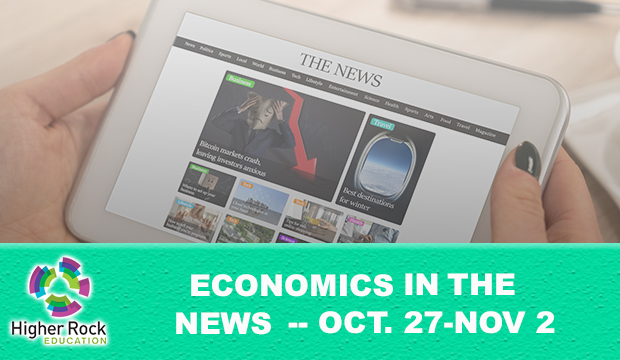The Top Economics Stories of the Week – Oct. 27-Nov. 2. 2019
Economics affects our lives daily. Below are some of the top storyies from this past week.
- The NCAA took a major step to allowing student-athletes to benefit from their name, image and likeness. USA Today reports that the NCAA’s top policy-making group voted unanimously to allow athletes to benefit in "a manner consistent with the collegiate model."
- Argentina elected new president Alberto Fernández last week and the The World Economic Forum discusses how he’s tasked with saving an Argentinian economy, which contracted 3% and has an inflation rate of approximately 38%.
- The European Union agreed to delay Brexit to Jan. 31. The Wall Street Journal ($) reported that the extension was agreed upon by ambassadors in 27 countries and grants a three-month extension to Britian’s EU membership.
- The months-long protests in Hong Kong have taken a toll on travel and businesses in the economy, as The New York Times ($) reports that it has led to a recession. Gross Domestic Product (GDP) fell 3.2% in the third quarter.
- The Federal Open Market Committee (FOMC) cut the federal funds rate for the third time this year. Chairman Jerome Powell suggested there would be a pause on cutting rates for the remainder of the year, The Wall Street Journal ($) reports.
- Alphabet Inc.’s Google agreed to buy Fitbit Inc. for $2.1 billion in cash, as announced Friday afternoon. The Wall Street Journal ($) reports that the acquisition is a move to enhance Google’s wearable business, including to compete with the Apple Watch.
- United States employers added 128,000 jobs in October and the unemployment rate inched up to 3.6 percent as announced in Friday’s jobs report distributed by the U.S. Department of Labor. NPR reports that the jobs report came in better than expected.
